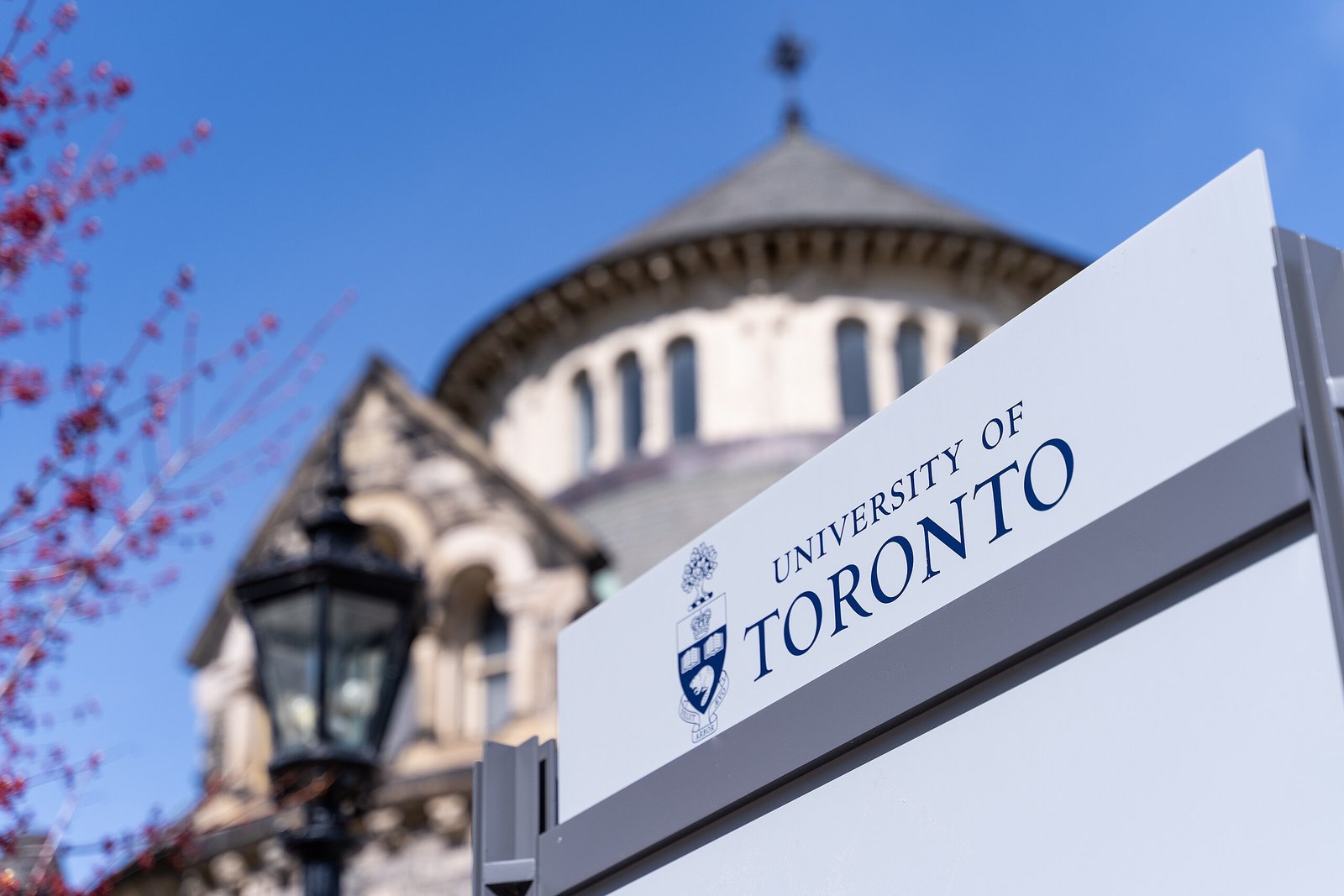Introduction: Why Fully Funded International Scholarships Matter for Nigerian Undergraduates
Fully Funded International Scholarships have the power to completely transform your academic journey. If you’re a Nigerian undergraduate dreaming of studying in Canada, the USA, or other top destinations without the crushing weight of tuition debt, these opportunities are your golden ticket.
But here’s the catch—getting one isn’t just about having good grades. It’s about strategy, preparation, and knowing how to stand out in a sea of ambitious applicants. And that’s exactly what we’ll cover here: from pain points Nigerian students face, to actionable tips that help you win big.
Fully Funded International Scholarships — Understanding the Real Meaning
Before we talk about applications and success strategies, let’s get real on what Fully Funded International Scholarships actually mean.
A fully funded scholarship covers 100% of your tuition fees, plus other major expenses such as:
- Accommodation or residence fees
- Health insurance
- Books and academic materials
- Living stipends (monthly allowance for food, transport, and personal needs)
- Sometimes even airfare
In short—you focus on learning, not worrying about how to pay your next semester’s fees.
Why Fully Funded International Scholarships Are a Life-Changer for Nigerian Undergraduates
Freedom from Financial Stress
The average cost of studying abroad in countries like Canada or the USA ranges from $15,000 to $35,000 per year. Without financial aid, many Nigerian families can’t afford it. Fully funded scholarships erase that barrier.
Global Exposure and Networking
You won’t just be studying—you’ll be meeting peers from all over the world, building friendships and networks that could shape your career for decades.
A Boost to Your Career Opportunities
Employers love graduates with international experience. It signals adaptability, global thinking, and cultural intelligence.
Pain Points Nigerians Face When Applying for Fully Funded International Scholarships
Even with the dream clear, there are real challenges:
- Limited awareness of available scholarships
- Incomplete applications due to poor planning
- Weak personal statements that fail to impress committees
- Missed deadlines
- Fear of competition leading to no applications at all
If this sounds familiar, you’re not alone—but the good news? Every one of these challenges has a fix.
The Top Fully Funded International Scholarships for Nigerian Undergraduates
Below are some of the best Fully Funded International Scholarships worth your attention:
| Scholarship Name | Destination Country | Coverage | Eligibility Highlights |
|---|---|---|---|
| Lester B. Pearson International Scholarship | Canada | Tuition, books, residence | High academic achievers with leadership skills |
| Mastercard Foundation Scholars Program | Multiple (Canada, USA, Africa) | Full tuition, living costs | Financial need + leadership potential |
| Fulbright Foreign Student Program | USA | Tuition, living, airfare | Graduate level (undergrads can find similar institutional programs) |
| University of British Columbia International Scholars | Canada | Tuition + living allowance | Exceptional academic performance |
| African Leadership University Scholarships | Mauritius + Global | Tuition, accommodation | Pan-African student leadership |
For more details on the Lester B. Pearson Scholarship, visit University of Toronto’s official page.
Canada vs USA — Which Destination Fits Your Scholarship Goals?
Studying in Canada with Fully Funded Scholarships
- Easier pathway for permanent residency after graduation
- High-quality but more affordable cost of living compared to the USA
- Scholarships often target leadership, innovation, and academic excellence
Studying in the USA with Fully Funded Scholarships
- Wider variety of universities and programs
- Scholarships can be merit-based or need-based
- Extremely competitive, but with huge career rewards
The Application Timeline for Fully Funded International Scholarships
Knowing when to act is half the battle.
- 12–18 months before start date: Begin research and shortlist scholarships
- 10–12 months before: Prepare for IELTS/TOEFL or SAT/ACT if needed
- 8–10 months before: Gather transcripts, recommendation letters, and start drafting essays
- 6 months before: Submit applications before deadlines
Step-by-Step Guide to Winning a Fully Funded International Scholarship
1 — Research Extensively
Don’t just Google once and stop. Use official university websites, scholarship boards, and trusted portals like Scholarship Positions.
2 — Tailor Every Application
Each scholarship has unique requirements. A one-size-fits-all approach will fail.
3 — Craft a Compelling Personal Statement
This is where you tell your story—why you, and why now. Show passion, clarity, and relevance.
4 — Get Strong Recommendations
Choose referees who know your strengths and can speak convincingly about your leadership and academic ability.
Common Mistakes to Avoid When Applying for Fully Funded International Scholarships
- Submitting incomplete forms
- Using generic essays for all applications
- Missing deadlines due to poor planning
- Not checking eligibility before applying
- Ignoring smaller or less-known scholarships
How to Make Your Scholarship Application Stand Out
- Show proof of leadership roles (school clubs, community service)
- Highlight innovation (projects, competitions)
- Include extracurriculars—it’s not all about grades
- Demonstrate commitment to using your education for positive change in Nigeria
Essential Documents Needed for Fully Funded International Scholarships
- Academic transcripts
- International passport
- Language test scores (IELTS/TOEFL)
- Recommendation letters
- Personal statement/essay
- Proof of extracurricular activities
Preparing for Scholarship Interviews
Getting shortlisted for Fully Funded International Scholarships is a huge win, but now comes the next big step: the interview. For many Nigerian undergraduates, this stage can feel intimidating—especially when the stakes are high. But here’s the truth: with the right preparation, you can walk into that interview with confidence and walk out one step closer to your dream.
Why Scholarship Interviews Matter So Much
The interview is where the selection committee decides if you’re more than just impressive grades on paper. They want to see:
- Personality fit — Are you adaptable, motivated, and globally minded?
- Communication skills — Can you express yourself clearly and confidently?
- Passion and purpose — Do you have a vision for how you’ll use this scholarship?
Think of it like a bridge: your application got you halfway, the interview gets you to the finish line.
Common Scholarship Interview Formats
Knowing the format in advance helps you prepare strategically:
- One-on-One Interviews
- Usually with one faculty member or program coordinator.
- More personal; expect deeper, tailored questions about your story.
- Panel Interviews
- Several interviewers at once—sometimes intimidating, but they want a rounded perspective.
- Virtual Interviews (Zoom, Microsoft Teams, Skype)
- Increasingly common for international scholarships.
- Test your internet, camera, and microphone well before the day.
- Group Discussions or Activities
- Rare but used for leadership-based scholarships.
- They assess teamwork, problem-solving, and leadership in real-time.
Steps to Prepare for Scholarship Interviews
1. Research the Scholarship and Host Institution
You must know exactly what the scholarship stands for.
- Read their mission statement and values.
- Know past winners’ profiles.
- Understand why they fund Nigerian students or students from developing countries.
Example: The Lester B. Pearson International Scholarship at the University of Toronto prioritizes academic excellence and leadership—your answers should reflect both.
2. Review Your Application Thoroughly
Interviewers often base their questions on what you wrote. Be ready to expand on:
- Your personal statement or essay.
- Specific achievements listed in your CV.
- Any leadership or volunteer experience you mentioned.
Tip: If you wrote about founding a campus group, be ready to explain the challenges you faced and how you solved them.
3. Prepare for Common Scholarship Interview Questions
Here are examples and what interviewers look for:
- “Why should we award you this scholarship?”
- Show a balance of merit and need. Demonstrate how you align with their mission.
- “Tell us about yourself.”
- A short, impactful summary of your academic journey, achievements, and career goals.
- “What are your long-term goals?”
- Show you’ve thought beyond graduation—tie your plans back to contributing positively in Nigeria.
- “What challenges have you faced, and how did you overcome them?”
- Demonstrate resilience and problem-solving.
- “How will you contribute to the university community?”
- Mention leadership, volunteering, or unique perspectives you bring.
4. Use the STAR Method for Behavioral Questions
The STAR method (Situation, Task, Action, Result) keeps answers structured:
- Situation — Briefly describe the context.
- Task — Explain your responsibility.
- Action — Detail what you did.
- Result — Share the positive outcome or lesson learned.
Example:
Q: “Tell me about a time you led a team.”
A: “Last year (Situation), my department needed volunteers for a campus sustainability project (Task). I organized a 10-person team, delegated roles, and created a weekly progress tracker (Action). We reduced paper waste by 30% in one semester (Result).”
5. Practice, But Stay Natural
- Record yourself answering questions—review your tone, clarity, and body language.
- Practice with friends or mentors, but avoid memorizing answers word-for-word.
- The goal is to sound prepared, not robotic.
Body Language and Presentation Tips
Scholarship interviewers are just as attentive to how you speak as to what you say.
- Sit upright—avoid slouching.
- Maintain good eye contact (with the camera if virtual).
- Use natural hand gestures for emphasis.
- Smile—warmth makes you memorable.
Virtual Interview Success Checklist
For Nigerian students applying to Fully Funded International Scholarships abroad, virtual interviews are the norm. Here’s a quick setup list:
- Lighting — Natural light from the front, or a soft desk lamp.
- Background — Clean and clutter-free.
- Internet — Stable connection, ideally with backup mobile data.
- Audio — Test microphone clarity in advance.
- Dress code — Professional attire, even if it’s an online interview.
Handling Nerves and Anxiety
- Breathing exercises — Slow inhale, hold for 3 seconds, exhale. Repeat before you start.
- Positive self-talk — Remind yourself: “I’ve been shortlisted because they see potential in me.”
- Preparation — The more you prepare, the more confident you’ll feel.
The One Thing Most Nigerian Applicants Forget
Many focus solely on selling themselves—but interviews are a two-way street. Prepare your own questions for the interviewers. This shows interest, maturity, and initiative.
Examples:
- “What qualities have you seen in successful past scholarship recipients?”
- “Are there alumni networks I could join if selected?”
Post-Interview Etiquette
- Send a brief thank-you email within 24 hours.
- Reaffirm your interest and appreciation for the opportunity.
- Keep it short and professional.
Quick Recap — Scholarship Interview Prep Checklist
| Step | What to Do |
|---|---|
| Research | Understand the scholarship’s values and mission |
| Review | Know your application inside out |
| Anticipate Questions | Prepare clear, confident answers |
| Practice | Use STAR method for structured responses |
| Present Well | Good body language, eye contact, smile |
| Test Tech | For virtual interviews, ensure a smooth setup |
| Follow Up | Send thank-you email |
Using Technology to Boost Your Scholarship Hunt
- Set Google Alerts for “Fully Funded Scholarships Nigeria”
- Join LinkedIn groups focused on scholarships
- Subscribe to university newsletters
The Role of Networking in Securing Scholarships
Connect with alumni who have won these scholarships before—they can give tips that aren’t on official websites.
Why Persistence Pays Off in Scholarship Applications
You might face rejection once, twice, or more—but each application improves your skills and increases your chances.
Conclusion: Your Fully Funded International Scholarships Journey Starts Now
The road to winning Fully Funded International Scholarships may be challenging, but it’s absolutely worth it. With preparation, persistence, and the right strategy, you can make your study abroad dream a reality—without the heavy financial burden.
Start today, stay consistent, and remember: someone will win these scholarships—why not you?
FAQs – Preparing for Scholarship Interviews
1. How long do scholarship interviews usually last?
Most scholarship interviews last between 20 to 45 minutes, depending on the program and the number of questions. Panel interviews may take longer.
2. What should I wear for a scholarship interview?
Even for online interviews, aim for professional attire—a clean, formal shirt or blouse works well. Avoid overly bright or distracting patterns.
3. How do I answer “Tell us about yourself” in a scholarship interview?
Keep it brief and impactful. Focus on your academic journey, leadership experiences, and career goals—link them back to how the Fully Funded International Scholarship will help you achieve them.
4. What if I don’t know the answer to a question?
Stay calm. It’s okay to pause, think, and respond honestly. If you don’t know, admit it politely and share how you would find the answer or relate it to something you do know.
5. How soon should I follow up after the interview?
Send a thank-you email within 24 hours. Keep it short, express gratitude, and reiterate your interest in the scholarship.



